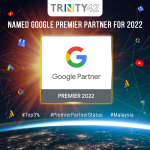The possible demise of Google

Yes, Google made all its money from advertisements and business was booming until it no longer was.
How will it end? Google’s primary win is the search engine and its main source of revenue until Amazon surpassed Google as the top product search destination. Then its foundations began to falter.
As many noted the online advertising industry experienced a major shift from search to discovery in the mid 2010s.
Facebook, Google’s biggest competitor took over the online advertising space with its in-feed native display advertising.
The people who turned to Amazon over Google? The 18–29 crowd led the way.
In late 2015, Apple — Google’s main competitor in the mobile space — added a feature to their phones and tablets that allowed users to block ads.
Devices running iOS were responsible for an estimated 75% of Google’s revenue from mobile search ads, so by making this move, Apple was simultaneously weighing in decisively on the great ad blocking debate of the 2010s and dealing a substantial blow to the future of online advertising.
The rising number of users blocking ads on mobile showed no signs of slowing down.
A year later, as the internet went mobile, so too did ad blocking. The number of people blocking ads on a mobile device grew 102% from 2015 to 2016; by the end of 2016, an estimated 16% of smartphone users globally were blocking ads when browsing the internet on a mobile device.
The number was as high as 25% for desktop and laptop users in the United States, a country that accounted for 47% of Google’s revenue.
The worst part for Google is the people most likely to block ads were in the most valuable demographic, millennials and high earners.
Young users are a good indicator for the future of technology, and they were heavy users of ad blocking software
Internet users had spoken, and they hated ads.
In early 2017, Google announced its plans to build an ad blocker into its popular Google Chrome browser.
Google’s ad blocker would only block ads that were deemed unacceptable by the Coalition For Better Ads, effectively allowing the company to use its dominant web browser to strengthen its already dominant advertising business.
Even after making this desperate and legally questionable move, it would quickly become clear to Google that even though ads were getting better, ad blocking numbers would continue to rise. Google had given even more people a sample of what it was like to be ad-free and people weren’t going back to the old ways.
The company realized that people not only disliked advertisements that were annoying but all advertisements in general.
source:https://hackernoon.com/how-google-collapsed-b6ffa82198ee
MARKETING Magazine is not responsible for the content of external sites.







